A Conversation With Anthony Osborne, The Hi-Fi General Manager
Melbourne‘s Hi-Fi is a day away from the public opening of their Brisbane venue. They’ve opted to establish it in the southern suburb of West End, outside of Fortitude Valley‘s live music hub. The Drones will be the first act to headline the venue, while fellow Melburnians Witch Hats and local act Hits will strike the first cymbals and chords. I spoke with The Hi-Fi’s General Manager, Anthony Osborne, about his expectations for the new room and the nature of the promoter-venue relationship.
Note: this interview was conducted on behalf of Mess+Noise. This is the entire conversation that I had with Anthony, while an abridged version is contained in my feature article, entitled High Stakes, which also includes interviews with several Brisbane music authorities and stakeholders.
We’ve always wanted to grow our business, and Brisbane is one of the key touring markets on the east coast. Brisbane’s part of the roster for most acts; it’s a good market that’s growing in terms of youth culture and population, so it just made business sense.
Did you guys have a knowledge of the local scene up here, or were you assisted by some industry contacts?
We’ve had a good look for a few years before diving in. For all the capital city markets in Australia, we’ve had consultants from a property and hospitality perspective who we’ve worked with to look at different areas of the city, to see what we can put together in terms of a live music venue. Our own knowledge of the touring market has assisted, too. In particular, West End stood out as a good spot, as a good cultural fit for our target market.
Why the West End location, when The Valley has become known as Brisbane’s live music HQ?
We’re in the business of placing bands who will attract people from anywhere nearby. We’re not really a ‘drop-in’ venue; we put on headlining artists in an effort to fill the room as often as possible. Although we’d like to be in a spot that has a good fit, at the end of the day, we can be a bit more flexible. West End is as suitable for us as The Valley, because of the fact that people will come to the destination to see a particular headlining artist.
And I suppose that the audience will hang around after the show and get to know West End a bit more.
Yeah, definitely. We think that pre-show and post-show is important, as you don’t want to be stuck in a cultural desert. People like to be able to go and do something. It’s no sin to not be in The Valley; we’d have happily taken an opportunity in The Valley, but we’re very happy to be in West End.
Did you encounter any resistance when planning for the venue, either from locals or other Brisbane venues?
Everyone’s pretty much welcomed us with open arms. We’ve got a real sense that our venue will be a good fit, and that it’ll be nice to have another venue in the mix.
So you recognised a gap in the market? Did you think that Brisbane was missing a mid-range venue?
There’s room in all the capital city markets for professionally-run venues that have a good tech solution, and a good customer solution. So Brisbane wasn’t missing a venue more than any other market; Melbourne has a lot of options for venues, but you still see people coming in and out of the market, and you see improvements for artists and promoters who want quality. There are some good operators in the Brisbane market, but there’s certainly room for us. It’s not that we recognised a gap; we see ourselves fitting into any market, if we can provide the right solution.
I’ve read that the venue capacity is 1,200.
That’s roughly correct. The capacity tends to get slightly reduced due to guest lists and so forth, but that range is where we’re aiming to be.
Okay, so locally, we’ve got The Tivoli, which is of a similar size [approximately 1,500], and I’m sure you’re aware that The Arena has closed.
Yeah, The Arena closure is disappointing for Brisbane. That venue took some bigger events. We always saw The Arena and The Tivoli – and to some degree, The Zoo – as being competitors who offer alternatives. Artists may still play multiple Zoo shows, as they haven’t had historically had many options at that 1,000-1,200 capacity level.
The Hi-Fi has taken a few of the shows that were scheduled to be played at The Arena; are you looking to occupy a similar market space?
The live industry is essentially promoter-driven at that end of the scale. We can’t match the capacity that The Arena offered [note: commonly quoted at 2,000], but there’s certainly other ways to package the experience. If we’ve got turnkey operations and good marketing and ticketing support, then we can offer a more cost-effective alternative for promoters to use The Hi-Fi. This means that they can perhaps look at reduced capacities with a similar cost result.
We work on keeping the costs down for those who book the room. We think that’s the best competitive advantage that we can offer, in addition to offering a great live experience. It’s about punters and artists; if they’re both happy, then promoters are happy. The ultimate clients in many cases are the promoters, who we get much of our business from. To make them happy, we’ve just got to make sure that the fans want to come to the venue, and that the artists have a great experience. That starts with a good tech solution, a smooth ticketing system, bars and a great sight-line for all in attendance. Melbourne’s Hi-Fi is one of the best viewing venues, and we’ve tried to replicate that with the Brisbane Hi-Fi. It’s purely designed for live music.
I read that the venue will offer seven levels of tiered vantage points.
We’ve designed it to allow everyone in the room to see the stage easily. That’s the most important thing we can do – you know yourself from going to gigs. All of a sudden you wonder why you went, because you’re stuck in a back corner and you can’t see anything. As much focus has gone into that aspect as the sound system.
The venue was previously a hotel for years, which did some live music, but in its last incarnation it was a pool hall. So it had a big space out the back – a big ‘footprint’ – but the inside has been custom-made to our requests. We put in a mezzanine, added a stage, tiered the floor and completely remodelled inside the building.
I’ve noticed that The Hi-Fi has some great national and international acts lined up; what are your plans to support the local scene?
We held a promotion to recruit local support acts for the opening night, headlined by The Drones, which received over 200 entries from local acts. Those entries have allowed us to build a database of artists comprising many different genres who’ll be interested in support work. We’ll be pushing those into the mix whenever we’re after local acts.
We’ll be supporting local promoters who want to put on local bands. If promoters approach us with a desire to put on themed nights for whichever genre they’ve organised, such as a collection of indie, or hard rock bands, we support that by actively seeking these kinds of requests. We also make it efficient and reasonable for promoters to put these shows on. We do this a lot at the Melbourne venue, too.
Our main focus is headlining Australian and international acts – that’s certainly the ‘bread and butter’ of our business – but we want to be as open as possible, to support the local scene by creating opportunities for promoters and acts.
How did the idea to get The Drones on board for the venue launch come about, and how did you arrive on the invite-only free show idea?
We were always going to do a free show on the opening night, because we thought that was just a great way to launch the venue. The Grates were booked two days after the launch; we could have just opened with that show, but we wanted to open with an artist who is a good cultural fit for our business. We thought that The Drones were suitable for that purpose as they’re a great, artistic indie band. We approached The Drones with the idea, and they accepted.
We’re doing the free opening show to give everyone an opportunity to come to the venue. We’ll have a lot of people who won’t know The Drones – they won’t be Drones fans per se – but they’ll want to check out the venue. And these people might become Drones fans on the night, or fans of the bands who are supporting [Melbourne’s Witch Hats and local promotion winners Hits]. We also allocated 300 tickets to The Drones’ fanclub, which went like wildfire. But we haven’t limited the event purely to guests, as we wanted Drones fans to come to the show, in addition to letting people in ‘off the street’, so to speak.
It’s great that The Drones enabled us to do that, as to some degree they’re making a sacrifice of their own by playing to a percentage of the room who aren’t necessarily passionate Drones fans.
I read a news release that mentioned live video feeds and occasional acoustic sets in a nearby bar.
There’s a standalone bar on Boundary Street called Vinyl, where we’ll be taking live video and audio feeds from particular gigs in The Hi-Fi’s main room and feeding them to Vinyl through a couple of big projector screens in the bar. We wanted to offer this as an add-on to sold-out gigs. We thought we’d take the opportunity to run the gig into a nearby location that contains venue-quality production sound.
We’ve had great responses from the artists, who’ve been very supportive of the idea as most of them realise that it’s an opportunity to spread their ‘brand’. It’ll be up to the artists and their management as to whether they’re comfortable going through with it, but the response we’ve had so far indicates that we’ll be doing the live Vinyl feed quite often.
We’ve done that with Jim Beam, who’ve been partners of ours for a while. They helped us pull the deal together, invest in a bit of production infrastructure, and support it with a bit of marketing, without being overtly commercial. If we can get a good, regular roster of local and international acts who’re keen to run the feed, then it’ll be great for people to be able to hang out at the bar and watch some great acts playing live nearby.
Vinyl will also be putting on some smaller ‘side shows’ where some artists will occasionally perform some smaller sets in an intimate location on a day surrounding their Hi-Fi show. These won’t be heavily promoted; maybe a week out from the show, we’ll advertise that a particular artist is taking a ‘lo-fi’ – most likely acoustic – opportunity, if that suits their style. The venue has a small stage and a decent production set-up, and has a capacity of around 150.
What’s The Hi-Fi’s policy on punter recordings and photography?
In most cases, the decision is made by the artist a couple of weeks prior to the gig, so our hands are tied in that aspect. We don’t have a problem with punters taking photos or recording, and most artists these days seem to agree. We provide that service as a part of our business, so if the artists want to enforce a ‘no camera’ policy, then we will oblige.
So photography will be dealt with on a per-artist basis, instead of a blanket venue policy. But it’s a fairly difficult thing to stop, since most phones now contain cameras. And I think thatif a band gets more exposure, regardless of their position, it’s probably not such a bad thing.
Considering the number of venues that are emerging in Brisbane, do you anticipate that ticket prices will go down?
I don’t think that the number of venues will have any impact on the ticket prices at all. Ticket pricing is driven by the number of touring artists and global exchange rates. So if our dollar loses its value and it becomes more expensive to tour the country, ticket prices will increase, though we haven’t seen that occur yet. Ticket prices are promoter- and volume-driven; booking agents won’t necessarily bring more artists to a city if there’s more venues.
I take it that you’re attempting to distinguish the Melbourne Hi-Fi from the Brisbane Hi-Fi.
They’re part of the same group. We recently dropped the “Bar and Ballroom” part of our name from The Hi-Fi in Melbourne; we tended to be colloquially known as “The Hi-Fi Bar”, which is wrong since we’ve never been called that. It just got adopted by our punters, who ran with it. But both venues are run by the same management structure, and they’ll very much work together.
Finally; you’re based in Melbourne, Anthony. Is there going to be a Brisbane-based Hi-Fi team?
There is. There’ll be a production team, an operations manager for the venue and some other full-time staff for marketing and promotion. Although the main company administration is based in Melbourne, we may have some people representing the company nationally over time, while operating out of Brisbane. We’re very excited to get into Brisbane; we can’t wait to get on the plane and have a big opening night!
The Brisbane Hi-Fi is located on Boundary Street, West End, Brisbane. It opens on Wednesday, April 29 with a show headlined by The Drones, featuring support from Witch Hats and Hits.
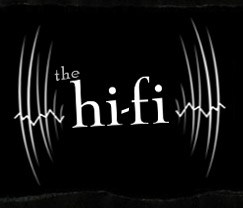

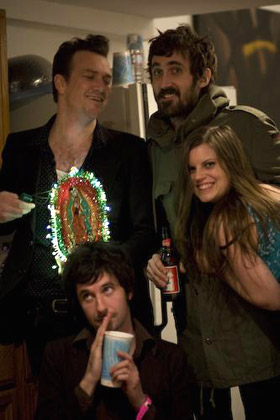
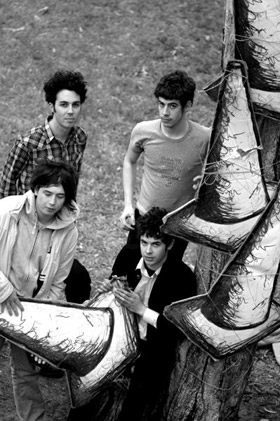
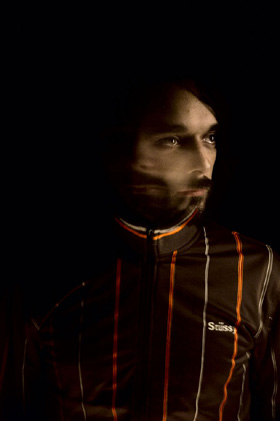
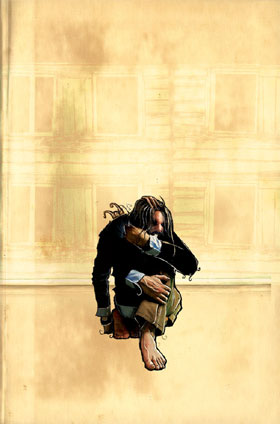 When do you expect the RPM album to be in stores?
When do you expect the RPM album to be in stores?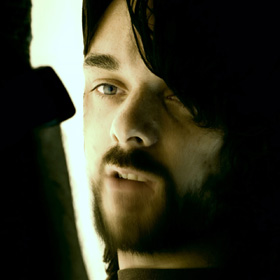
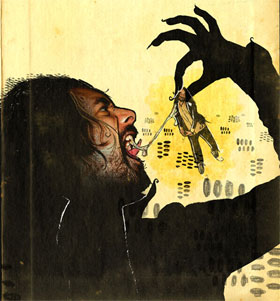 Finally – as a musician in 2009, what’s the biggest barrier to getting your music heard? How do you overcome that barrier?
Finally – as a musician in 2009, what’s the biggest barrier to getting your music heard? How do you overcome that barrier?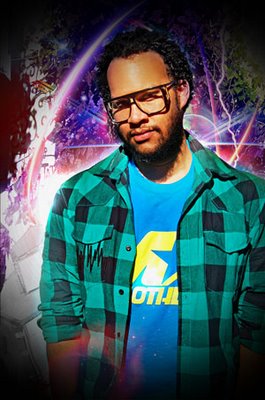 Former Californian hip-hop artist
Former Californian hip-hop artist 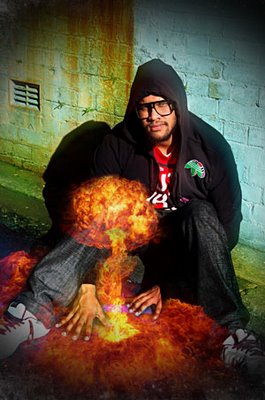 Labels won’t get away with screwing over consumers anymore, by pumping cash into one single and neglecting the rest of a project only to release a sub-par product. It’s time for everybody to step their game up!
Labels won’t get away with screwing over consumers anymore, by pumping cash into one single and neglecting the rest of a project only to release a sub-par product. It’s time for everybody to step their game up!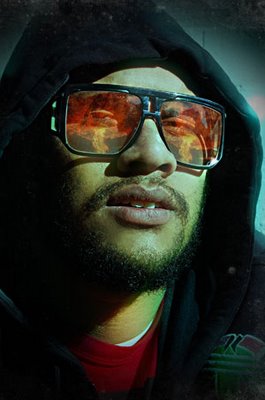 hat advice do you have for Australian artists who think they’ve got the talent to be heard?
hat advice do you have for Australian artists who think they’ve got the talent to be heard? By ‘building everything up’, you mean your web-engaged fanbase? You think that fans actually want to connect with artists? Are you insane?
By ‘building everything up’, you mean your web-engaged fanbase? You think that fans actually want to connect with artists? Are you insane?